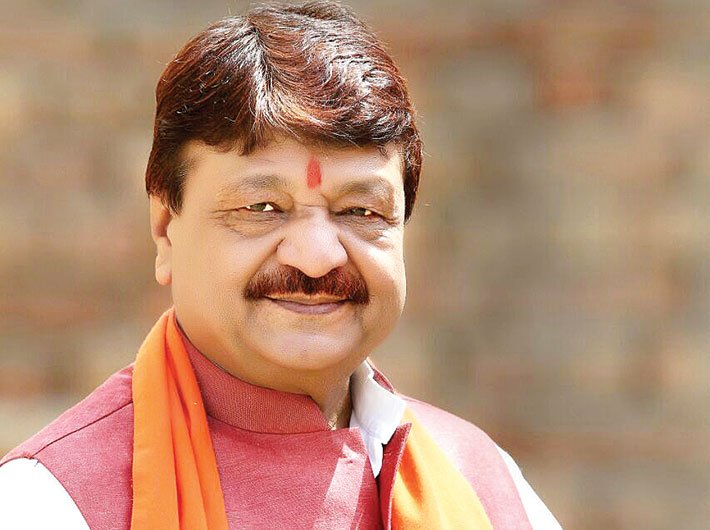The man responsible for driving urban development in Madhya Pradesh is also well versed with the ICT and has played a key role in shaping the growth of IT industry in the state. In an interaction with Governance Now, he talks about the smart city plans of the government.
How do you define a smart city? Which cities in Madhya Pradesh you plan to develop under the central scheme announced by the PM?
The smartness of a city lies in meeting the citizens’ aspiration and the quality of life. While we are looking at improving existing cities like Bhopal, Indore and Gwalior, the state government has already identified Gwalior, Ujjain, Sagar, Jabalpur and Dewas, for integrated development as smart cities. We are also keen to develop the Bhopal-Indore industrial corridor. Besides, Vikram Udyogpuri near Ujjain is also planned as part of the Delhi-Mumbai industrial corridor. The development will have a huge impact on the state’s growth and create opportunities for education, healthcare and jobs.
The smart city project as envisaged by the Modi government is all about comprehensive development based on four basic pillars – institutional infrastructure for better planning and management, including governance; physical infrastructure that includes solutions for urban mobility; housing for all; and easy access to municipal services. The draft document also emphasises on creating the social infrastructure like education, healthcare and facilities for recreation. Economic infrastructure is another important pillar and the document highlights that a smart city should create facilities to enhance the city’s competitiveness as an investment destination. Together, the four pillars can create a virtuous circle that can make the city more liveable. Our effort is to ensure that the centre of attention for each of these pillars are citizen.
What are the biggest urban challenges that Madhya Pradesh needs to address today?
The state needs to create a balance between the four pillars. We need to ensure a planned growth so that the weakest person is not left out of this development process. Inclusiveness is the key in terms of delivery of citizen service as far as city governance is concerned and all infrastructures need to be built to meet this objective.
There are other more visible challenges in terms of civic infrastructure like solid waste management, waste water management and drainage system. There is a need to strengthen the public transport, including bus services, bus stands and terminals, urban mobility and traffic management. We also need to provide affordable housing to all. We are already working on several projects being financed through the Madhya Pradesh urban development company. The state government is currently in the process of implementing regional municipal solid waste (MSW) projects on PPP basis.
Migration from rural areas have often been cited as the reason for the degradation of existing cities. How do you plan to address this issue?
We are looking at investing in smaller urban local bodies (ULBs), which are spread across the state and are in a process of transitioning to become urban centres. Better social, institutional and physical infrastructure in smaller towns will encourage people to stay there and travel to bigger cities only for work. Local job opportunities will further reduce the floating population. Besides, it is also important to strengthen our rural economy. The focus is on regional planning. People migrate to cities for better opportunities. If we are able to strengthen the village economy and extend city-like facilities to the rural population we can reduce this trend.
What is the status of urban infrastructure in the state?
The state is implementing water supply projects under the central government’s urban infrastructure development scheme for small and medium towns (UIDSSMT) as well as externally aided projects in more than 200 towns. While MSW projects are being implemented on a regional basis on PPP mode, the state government has also initiated waste water management and drainage projects. Though the project is already underway, we are waiting for the government of India’s scheme to support the same. Initiatives have also been made to support city infrastructure through more sustainable means. We are using IT-based solutions for better management of street light and water pumps, as well as lighting in municipal buildings. The technology helps us to automatically switch-off street lights at the dawn and reduce power consumption. Similarly, sensors are being used to monitor pumping stations.
And what are the major changes you want to bring?
The cities will focus on better planning and development of greenfield areas, provide adequate infrastructure for municipal services and public transport, preserve the heritage areas and strengthen the city governance and administration through ICT. While we are already working towards developing the next-gen cities, we are also working towards improving the existing cities.
We are also committed to make all cities in Madhya Pradesh slum-free by 2018. For this, the state government is working towards increasing the housing stock. We also plan to work towards enhancing the supply of affordable housing in the state. This is part of the slum-free city action plans that is also relying a lot on e-governance measures to map the city dwellings and slum areas.
Is the state government also mapping gaps in city infrastructure?
Yes, the state is mapping the gaps. The investment is majorly sought from earlier government of India schemes, external aid from ADB, the World Bank, DFID and KfW - the German government-owned development bank. The state government has also taken a loan from HUDCO. We are now planning to go for market borrowing and private sector investments for the viable projects. We have also been participating in the consultations held by Delhi and are waiting for the GoI to release the guidelines for their scheme based on which we can seek assistance.
Is the state considering integrated urban transport system?
Yes, the mass rapid transit system or the MRTS projects are being developed with integrated urban transport system approach in Indore and Bhopal. In other cities we are developing and implementing customised solutions for public transport – we have completed the bus procurement in all the municipal corporations and are now engaging the fleet operator. Similar systems are being developed for smaller towns on regional basis.
With your previous experience as an IT minister, how are you planning to use information technology for improving city services?
ICT is a solution that cuts across urban management and governance, infrastructure and service delivery as well as safety and community engagement. While we will need to focus on developing physical infrastructure and improving processes for better governance, we can leverage ICT solutions for bringing in efficiency, effectiveness and economy. The state government has already implemented an ERP-based integrated municipal administrative system in Bhopal that is now being scaled to cover all 370 ULBs through the e-nagarpalika project.
Given the overlap of roles between line departments, municipal corporations and development authorities, what kind of changes you propose to make city governance better?
We are in the process of implementing the cadre reforms for ULBs and we are also streamlining the procedures and addressing the staff strength related gaps in development authorities. The department of housing and environment has now been made part of the urban development and environment department to ensure convergence at institutional and policy level and ensure clear roles and responsibilities.
The state has also implemented projects like automatic building plan approval system, mass energy solutions, urban sector management information system and similar initiatives to enhance city governance.
How will you ensure that cities become environmentally sustainable?
We are focusing on issues like municipal solid waste management, waste water management and lake conservation. Bhopal is blessed with abundance of lakes and we are committed to better managing them. The state is also focusing on creating a system for non-motorised transport. We have already taken initiatives for energy efficiency in municipal services as well as municipal offices.

